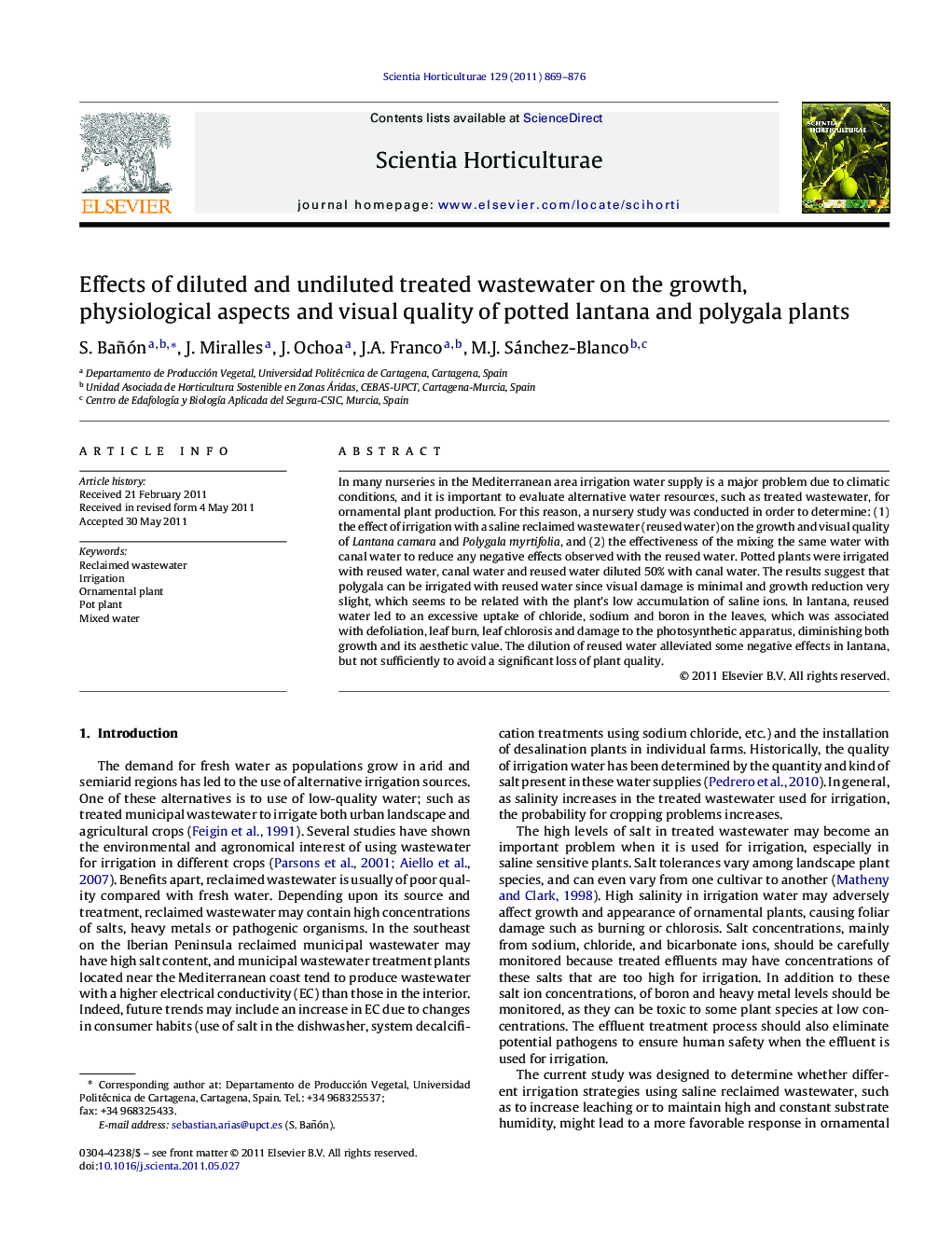| Article ID | Journal | Published Year | Pages | File Type |
|---|---|---|---|---|
| 4568037 | Scientia Horticulturae | 2011 | 8 Pages |
In many nurseries in the Mediterranean area irrigation water supply is a major problem due to climatic conditions, and it is important to evaluate alternative water resources, such as treated wastewater, for ornamental plant production. For this reason, a nursery study was conducted in order to determine: (1) the effect of irrigation with a saline reclaimed wastewater (reused water) on the growth and visual quality of Lantana camara and Polygala myrtifolia, and (2) the effectiveness of the mixing the same water with canal water to reduce any negative effects observed with the reused water. Potted plants were irrigated with reused water, canal water and reused water diluted 50% with canal water. The results suggest that polygala can be irrigated with reused water since visual damage is minimal and growth reduction very slight, which seems to be related with the plant's low accumulation of saline ions. In lantana, reused water led to an excessive uptake of chloride, sodium and boron in the leaves, which was associated with defoliation, leaf burn, leaf chlorosis and damage to the photosynthetic apparatus, diminishing both growth and its aesthetic value. The dilution of reused water alleviated some negative effects in lantana, but not sufficiently to avoid a significant loss of plant quality.
► Polygala was better able to restrict chloride, sodium and boron uptake than lantana. ► Reused water led to excessive saline ion uptake in the leaves of lantana, which led to leaf damaged and diminished growth. ► The aesthetic and growth responses to mixtures of reused water and canal water were better in lantana than in polygala. ► 50% dilution was not sufficient to produce good quality lantana plants. ► Polygala is a tolerant species to saline reused water.
